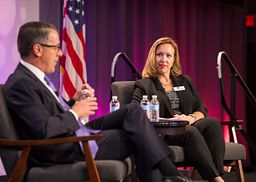Advice for New Educators
Serving as PAEA president has brought many wonderful opportunities into my life, but one of the activities I have enjoyed most is meeting individuals who are just starting their educational careers. These interactions often make me think back to my own PA education journey and the advice I would offer to new educators.
1. Find a good mentor and build your network. Both formal and informal mentorship have been crucial to my career trajectory. My first full-time education position placed me at my PA school alma matter, the University of Alabama, Birmingham Physician Assistant Studies program. In this position, I met Patricia Jennings, who offered me invaluable mentorship and sponsorship. In addition to encouraging me to publish within my first six months on the job, she also introduced me to other educators who shared my professional interests. As my network grew over time, my connections alerted me to professional opportunities, encouraging me to apply to volunteer on PAEA’s Diversity and Inclusion Mission Advancement Commission (DIMAC)’s Recruitment and Retention Subcommittee and the PAEA Board of Directors.
2. Embrace your PA education community. I would encourage all new staff and faculty to take advantage of PAEA’s educational programming. These events allow attendees to build camaraderie with peers and learn from experienced educators who have the expertise and passion for helping new faculty excel in their roles.
When I entered PA education in 2010, I attended my first PAEA Education Forum in Baltimore, MD. The energy was infectious—I felt like I had found “my people.” I hope you will join us for the 2022 PAEA Education Forum either in person in San Diego, CA or through an on-demand pass.
PAEA also offers role-based and topic-based workshops throughout the year that focus on growing leadership, excellence, and innovation in PA education. Our Fall Workshop lineup will include Faculty Skills 101 and Clinical Coordinators 101, both of which are designed to share practical advice, resources, and strategies to help educators get acclimated to their new role.
3. Know that you’ll improve. No one is an expert at the beginning of their teaching career and accepting that early on will serve you well. Not only will it alleviate the pressure to be perfect, but it will also allow you to have fun learning. Be willing to accept feedback; admit when you’re wrong or you don’t know something; learn from your experiences; and seek out learning opportunities throughout your career. In essence, model the principles of lifelong learning that we teach to our students.




